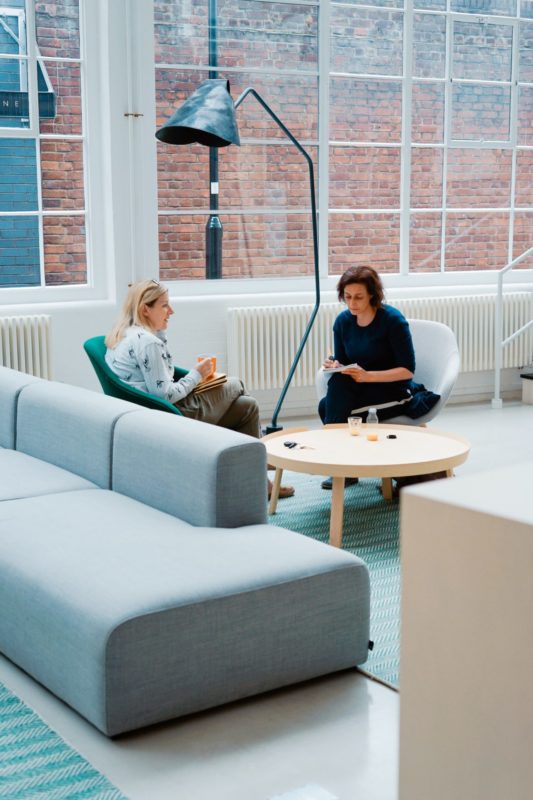How to settle a divorce out of court
Divorcing couples have several Alternative Dispute Resolution options available to them. ADR is a way to settle disputes without the need for court involvement and there a number of approaches to help you reach a mutually agreeable settlement.
What are the forms of alternative dispute resolution? Options include divorce mediation, collaborative divorce, arbitration, and early neutral evaluation.
Why is ADR better than going to court?
Alternative Dispute Resolution can help resolve disputes more quickly. By avoiding the expense of lengthy legal disputes, ADR methods like mediation can be a less expensive option to consider.
ADR offers a more private and confidential process which many divorcing couples will appreciate when dealing with sensitive family and financial matters. By focussing on communication, ADR can help reduce stress and offers a less confrontational approach to divorce.
What is Dispute Resolution?
There are many different forums available for family law dispute resolution. These are:
- Mediation
- Family Mediation
- Hybrid Mediation
- Collaborative Law
- Arbitration
- Private Financial Dispute Resolution (FDR)
- Early Neutral Evaluation
- Round Table Meetings
Which method you choose will depend on your individual circumstances and how much involvement you want to have. Our alternative dispute resolution solicitors can discuss all the options with you to find the best solution for you.
What is Mediation?
Mediation is one of the choices available to couples exploring Alternative Dispute Resolution for their divorce or separation. How does mediation work in a divorce? A neutral, unbiased, professionally trained mediator will work with you to help you reach an amicable solution without the need to take matters to court save in so far as sealing the order once agreement has been reached.
What to expect in divorce mediation: the mediator’s role is not to provide advice or input on the decision that is made, but to help prompt the best outcome by asking questions that will allow you to come to the right decisions. Mediators are there to assist and help you understand the issues, as well as to provide clarity.
It’s also important to recognise that although the mediation process is voluntary, the courts do encourage mediation.
Family Mediation
Family mediation is where an independent, professionally trained mediator works with you to help you work out arrangements for finances and children following a separation or divorce. It can also be helpful when arrangements that are already in place need to change due to a change in circumstances. The mediator helps you find a solution that works for both you and your ex-partner. The process is less stressful and significantly quicker than going to court, thereby potentially saving you money.
Hybrid Mediation
Hybrid mediation is a non-court based dispute resolution method that is particularly suited to high conflict or complex cases as it allows for lawyers to be included in the mediation process, as with mediation it is possible to undertake this as shuttle mediation which allows you and your ex-partner to sit in different rooms. You will be helped to focus on the issues, explore options and formulate proposals for settlement, all whilst having your legal representative present.
Collaborative divorce
Collaborative family law enables divorcing couples to resolve their disputes without going to court. Both parties use specialist collaborative lawyers who work together to help them reach an agreement.
Divorcing couples and their lawyers meet in a series of face-to-face sessions which can also include other professionals such as financial advisors. The focus is on collaborative family law can offer a more amicable and less stressful way to approach the divorce process.
Arbitration
Arbitration is a method of private dispute resolution that allows parties to settle disputes outside of court. Both parties agree to appoint an impartial arbitrator – an experienced legal professional – to make a binding decision on their case and the process can be used for financial disputes and issues concerning children, such as child arrangements. Family arbitration can provide a more flexible, private and quicker process to family law issues.


Private Financial Dispute Resolution (FDR)
Private Financial Dispute Resolution (FDR) is an out-of-court process that helps couples resolve financial issues arising from divorce or separation. In this process, a neutral legal expert acts as an advisor to provide guidance on how a court might handle the case. This allows both parties to negotiate a settlement with a clearer understanding of potential outcomes, reducing the need for prolonged litigation. The private FDR process is confidential, quicker than traditional court proceedings, and can be scheduled at a time convenient for both parties, often making it a cost-effective and efficient option.
Early Neutral Evaluation
Early Neutral Evaluation (ENE) is a form of alternative dispute resolution where an impartial expert assesses the merits of each party’s case early in the process. This evaluation provides both parties with a clear, unbiased perspective on the likely outcome if the case were to proceed to court. ENE is particularly useful in family law disputes, offering a realistic view that can help facilitate negotiations and encourage settlement without a lengthy legal process. It is confidential and non-binding, allowing parties to gain insights and potentially reach an agreement more efficiently than through traditional court proceedings.
Round Table Meetings
Round Table Meetings in divorce and family law matters involve both parties and their solicitors coming together to discuss and negotiate key issues, such as financial settlements or child arrangements. These meetings provide a less formal, more collaborative setting compared to court proceedings, encouraging open dialogue and mutual problem-solving. The goal is to reach a fair agreement without the need for litigation, saving time, reducing costs, and minimising stress. Round Table Meetings are flexible, allowing for tailored discussions that address the unique needs of the family, and they often result in quicker resolutions than more adversarial approaches.
What are the benefits of mediation services?
The main benefits of mediation are:
Flexibility
Sessions can be arranged for a time and place convenient to you and the mediator. You also set the time between sessions and manage the pace at which mediation progresses – you don’t have to wait months for the next date as can happen in the court process. It also means that you can make sure that you have the time you need to collate financial documents and information, and to think about any suggestions that have been made.
You can focus on the matters that are important to you and your family, including those which may not otherwise be relevant in the court process.
Decisions made within mediation can be tailored to suit your family and facilitate flexibility beyond what a court may have the power to order.
Better Communication
The mediator’s role is to facilitate dialogue between you and your ex-partner and to encourage suggestions and alternative options. Decisions made during mediation are more likely to be stuck to as you have been involved in the process.
Confidentiality
As the mediation process is private and confidential, you can explore options without commitment or raising expectations.
Efficiency
Successful mediation can be cheaper and quicker than court proceedings although it is true to say that it is not for everyone. If matters are not proceedings as hoped, the process can be terminated at any time and we would always advise that any good mediation has legal advice running alongside it.
Why use Dispute Resolution?
There are significant advantages in trying to resolve matters outside of Court, for example:
- It can be quicker than Court proceedings
- It can cost less than protracted Court proceedings
- You have greater control over who is involved – for example, you can choose the Mediator or Arbitrator
It is important to remember, however, that all forms of alternative dispute resolution are voluntary, and you cannot ‘make’ the other party engage if they are not comfortable with the process.
We also recognise that there are times when the only route to take is to issue Court proceedings to sort out finances and/or child arrangements. If this is the case, then we will guide you through the process, explaining each step as we go.
Why Hawkins Family Law?
Alternative dispute resolution is a critical option available to you when you are looking to resolve family issues. There is no one size fits all, so it is vital that you have different options to choose from. At Hawkins Family Law, we are able to offer collaborative law, arbitration and round table meetings, and we regularly encourage our clients to enter into mediation, private FDRs and Early Neutral Evaluations.
Established in 2001 and specialising solely in family law matters, the Hawkins Family Law team are all ‘people’ people and are committed to producing rounded outcomes for our clients, offering expertise in whatever forum works best for you. We are committed to the benefits that collaborative law can offer clients.
We can provide family law advice and assistance relating to your children, separation and financial matters, and offer these services whether you are married, co-habiting or in a civil partnership.
